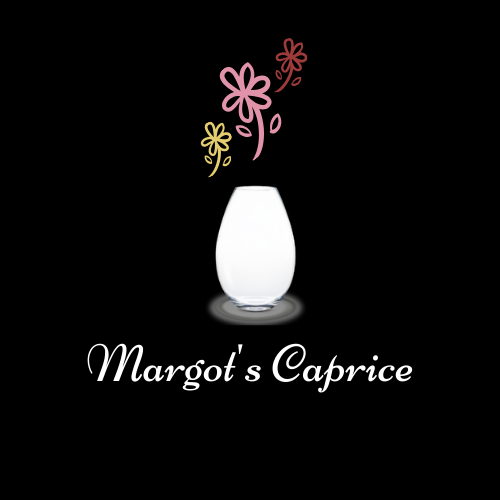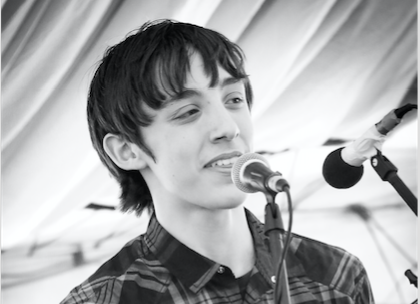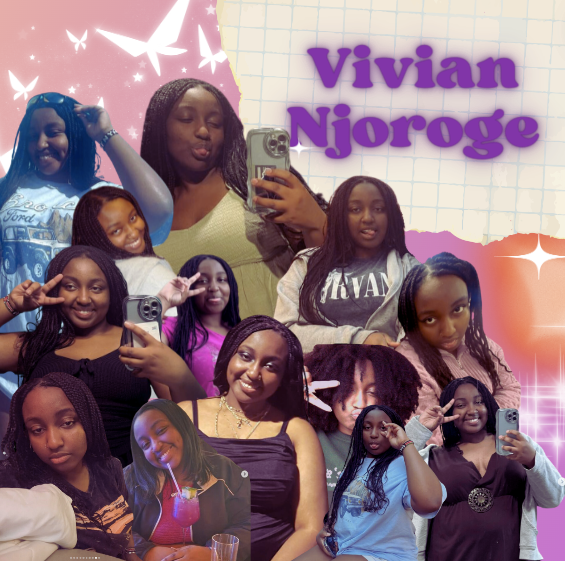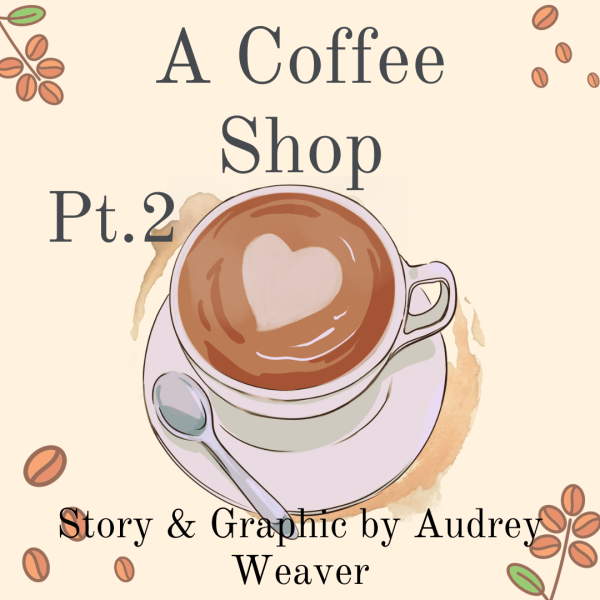Margot’s Caprice

Margot hated flowers. They were always too pink, too yellow, artificially pumped full of color that everyone knew, deep inside, was an illusion. Flowers weren’t hardy enough to grow strong on their own, so you had to treat them like royalty, even though they offered absolutely nothing in return. Nothing except maybe a vehicle for condolences or a substitute for words that were left hanging in the rainy Sunday air.
They were a crutch. That was the crux of it. They were a crutch for people to lean on when feelings were too hard to understand or when there was nothing left to do but stare. If you had to choose between staring at shiny black shoes and staring at a pitiful bouquet, the latter was always the popular choice. Margot looked down at her own untied shoelaces and frowned. It seemed like there were loose ends everywhere these days.
Black umbrellas hovered like vultures as the reverend opened his bible and read a few passages out of order with clumsy hand gestures and a quavering voice. People nodded, and a few ladies from the bridge club sniffled quietly, but Margot wasn’t listening. There was a man a few feet to her left with a peppered gray beard and a crooked blue necktie who glanced at his wristwatch too often. Every few minutes, he would turn to the woman next to him and whisper something. Margot could never hear what he said, but every time, the woman would reply, “That’s exactly right! You really never can tell.” Her voice was syrupy sweet, words running together like honey, too smooth to be sinister. To Margot, it was a sticky sap, deceptively foul and full of unsuspecting danger. Still, she would rather stare at this woman than the carnations carefully arranged in the glass vase that was perched on the headstone. A gust of wind sighed in agreement and tossed a handful of leaves into the ditch at the foot of the hill.
Margot blinked a few times to regain her composure. Remember what Dad said, she thought to herself. No questions, no answers, no complaints. She and Grampa Wally had never been close, but it had seemed wrong not to come and pay respects. After all, he was family, however estranged he had been in those final years. Pay respects was a phrase Margot didn’t particularly like, because it implied that she had something left of herself to give to her dead grandfather, but she hadn’t objected when her father had used it to justify the three hour drive to Wahpeton to attend the memorial service. There she stood, bored, detached, defeated, until something caught her eye.
They were slow at first. The first flower simply floated effortlessly into the air, moving with such an ease that Margot almost thought nothing of it. The next one was bolder, leaving its friends behind in a display of breezy haughtiness. The third was faster, rising into the air unimpeded, like a snake slithering through the desert sand. By the time the seventh flower had maneuvered its way out of the helpless vase (which had failed completely to perform its one and only duty), Margot realized she had no idea what to do.
She tried to say something, to point with her finger to the carnations that had begun to drift into the air, but found her mouth dry and salty, found her hands frozen in place. No one but Margot seemed either attentive or bothered enough to watch as the flowers floated, one by one, up and up and up until there was nothing left to see. The vase quivered as it was abandoned by its contents, but no one seemed to hear the clinking sound of glass on marble that reverberated in Margot’s ears.
Soon, they would all be gone. There would be no more flowers. The feeling of loss that wrapped itself around Margot’s body, suffocated her, came as a complete surprise, and yet, something about it fell right into place. She hated them, too droopy to be pretty, too saturated to sweeten the air, and yet she couldn’t stand to see them go. She felt alone. Not the kind of alone she was used to, but the kind she had felt when her mother said she was really leaving for good. In no time at all, there was only one flower left.
Margot jolted forward, her petrified limbs suddenly compelled to move by something more powerful than fear, something that shook the ground beneath her feet. She cut through the crowd, deflecting the sideways looks that flew at her from every direction. She was sure she wasn’t going to make it. Her path was perpetually obstructed by something, someone. But she was so close. So close to the place where the vase stood, the place where the single carnation began to make its ascent. Up, up, up! The flower fought the dribbling rain.
She made it just in time, breathless; a mere second later, and everything would have been different. But as she stumbled up to the headstone, as the reverend stopped talking and turned to stare, it appeared as though her encounter with the flower was meant to be. The carnation, having finally made liftoff, moved quickly into the air, but so did her outstretched palm. The flower seemed confused at first by the clenched fist around its stem, but it only faltered a moment before it continued on its upward path. To the astonishment of everyone but Margot, she, too, was lifted into the air.
She was relieved. It had been so close. She tightened her grip on her petaled companion, savoring the free feeling of being whisked away, unconstrained, tied to nothing but this flower. The sensation of bewildered air rushing past to make way for a girl and her flower was so exhilarating that Margot never even noticed when her left shoe tumbled from her foot, flimsy laces flailing all the way to the ground.
Rocketed far above the earth, Margot let out a deep breath. When she looked up, she was blinded by the sun, but through scrunched eyes, she could see the convoy of carnations leading the way above her. When she looked down, she could see the familiar scene with the gray headstones and the umbrella vultures shrinking beneath her. As she was pulled through the atmosphere, the small movements of the funeral-goers, squinting to follow her flight, scrambling to take some unknown action, became nothing but a blurry tableau. Margot smiled for the first time she could remember.
Your donation will support the student journalists of Enloe Magnet High School, allowing us to cover our annual website costs. We are extremely grateful for any contribution, big or small!

Sam is looking forward to another awesome year for the Eagle's Eye, pandemic or not! He loves to go to concerts, festivals, and anyplace there’s live...

















